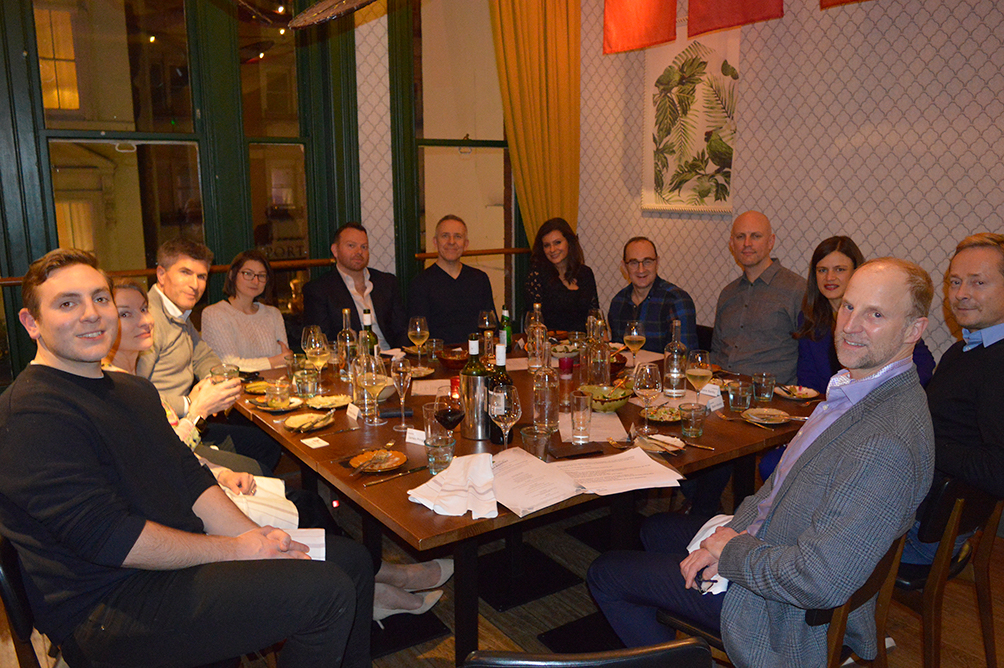
If you build a business, nurture it and see it become successful, it can be tough to hand over the reins when the time comes to sell up and move on – both practically and emotionally.
Propeller’s recent round table dinner brought together several entrepreneurs to discuss how they approach building a team to help shape the business as an attractive target for acquisition – and how they personally feel about transferring ownership and leadership of their company.
Serial entrepreneur Dylan Collins, co-founder and chief executive of SuperAwesome, the leading kid-safe brand engagement platform, and Venture Partner with Hoxton Ventures, shared insights as the guest speaker.
While the discussion, chaired by Propeller founder Martin Loat, followed Chatham House Rules, guests were kind enough to share thoughts beforehand on strategies for strengthening the company – and the owner’s hand – before beginning conversations with potential buyers.
Dylan, an active investor and advisor across both children’s media and technology companies, explained that a key role of the founder/CEO is “energy creation” – to generate emotional momentum for the team to keep marching forward.
He said: “More often than not, what starts as an anticipated three-year journey turns into a six or seven (or more) year journey. Being able to keep a team focused and excited while grinding on tends to involve a huge amount of energy.”
He added that some founder/CEOs might feel they are falling behind their peers working in corporate life as professional careers take off – holding your nerve and self-belief is vital.
Dylan’s recommendations for CEOs looking for a power up:
- Make sure you have trusted partners early to share the responsibility and “hire partners, not companions.”
- Ensure you have a therapeutic outlet, which is why a chairman becomes essential as the company scales up. The CEO/founder needs someone they can speak with that isn’t in the management team.
- Try to sleep properly. Founders are likely to have terrible sleep habits but should aim to get seven hours sleep a night. It’s one of the biggest contributors to mental strength and to problem solving.
- Find something joyful in any aspect of your life to balance out with the brutal challenge of running a company.
Other recommendations for keeping a company on the ball and the leadership team heading in the right direction include the suggestions from Julia Salasky, founder and CEO of CrowdJustice, to create good onboarding practices and set transparent expectations. Unclear expectations can lead to chaos.
Roslyn Shaw, founder and CEO of Alpha Grid, a Financial Times joint venture, gave some salient advice regarding culture. She said that it’s inevitable that the owner’s culture pervades and defines the organisation “but you need to decode, define and package that as something everybody can buy into, contribute to and own, long before the owner steps back, if it is to have any chance of living on.”
The practical application of this, as Diane Banks of Diane Banks Associates pointed out, includes not being the first port of call for clients and putting other members of staff out there as spokespeople for the business rather than yourself.
Colin Brimson, co-founder and CEO of d‑flo, pointed to getting the basics right “specifically a solid legal framework and good accounting practices. Having supportive lawyers and accountants on hand is an absolute imperative.”
Colin and Ed Bussey, CEO and founder of Quill, both focused on the kind of people to hire. Colin said: “Look for people with complementary skills in the industries you work within and ensure they share the same energy and enthusiasm”, while Ed added that founders need to hire people who are better than themselves and give them the space and incentive they want to succeed. He warned that prioritising the quality or timing (to avoid being too early or too late) of recruiting successors cannot be compromised and making the wrong choices can destroy a company.
Roslyn added that to allow a team to grow, the owner must decide which decisions to be consensual over and which not to, and to be clear with everybody in the leadership team about this divide.
Attendees for the dinner, pictured from bottom right anti-clockwise, included Propeller founder Martin Loat, Rami Alanko, founder and CEO of Beemray, Diane Banks, founder of Diane Banks Associates – Literary and Talent Agency, Colin Brimson, co-founder and CEO of d‑flo, Simon King-Cline, founder and owner Aspect Ltd, Maggie Zaboura, founder and CEO of Zaboura Consultancy, Martyn Dawes, founder and Chairman of CoachMatch and founder of Coffee Nation (now owned by Whitbread’s Costa Coffee), Dylan Collins, co-founder and chief executive of SuperAwesome, Julia Salasky, founder and CEO of CrowdJustice, Ed Bussey, founder and CEO of Quill, Roslyn Shaw, founder and CEO of Alpha Grid and James Pringle, founder and CEO Suggestv.